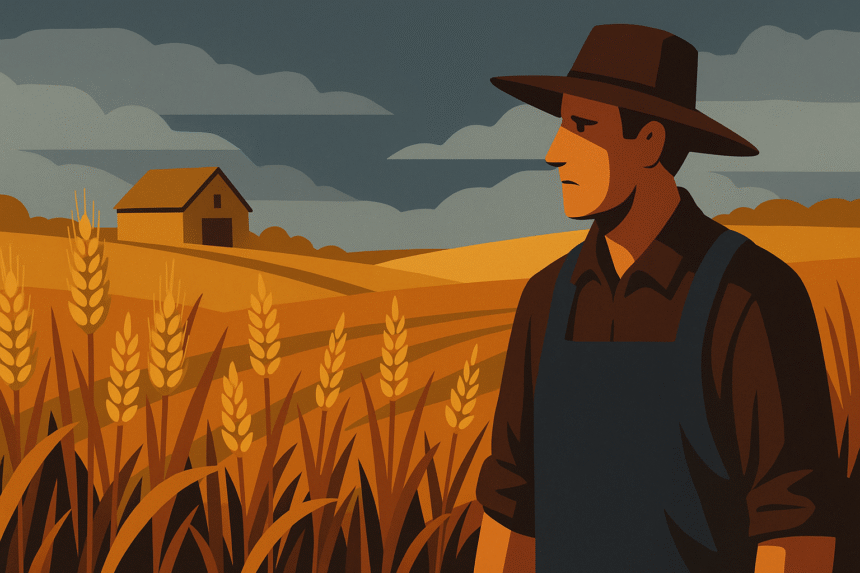British agriculture faces another difficult year as farmers contend with extreme weather, weak crop yields, low prices, and shifting government support in the wake of Brexit.
Wheat and Crop Yields Under Pressure
Preliminary estimates from the Agriculture and Horticulture Development Board (AHDB) suggest the average yield for wheat — the UK’s most cultivated crop — will fall to 7.3 tonnes per hectare this season, 9% below the 10-year average. Prolonged spring droughts forced an early harvest, depriving crops of vital soil moisture.
Barley yields, the UK’s second most common crop, are so far aligned with the long-term average, while oats have seen a 13% decline. Farmers warn that the increasing frequency of extreme weather — droughts following last year’s record rainfall — is making food production increasingly unpredictable.
“This year’s harvest has been extremely challenging for many growers, with huge variability even within regions and on individual farms,” said Jamie Burrows, crops board chair at the National Farmers’ Union.
Economic Pressures Mount
Despite poor domestic output, wholesale wheat prices remain subdued at about £169 per tonne, well below the highs of more than £300 per tonne in 2022, following Russia’s invasion of Ukraine. Strong global supply has kept international markets stable, limiting any price lift for British farmers.
According to Defra data, the total area of English land used for wheat, barley, oats, and oilseeds has dropped to a record low of 2.7mn hectares — down 26% since its 1986 peak. While wheat planting rose 9% this year, the longer-term decline in cereal production continues.
Brexit and Subsidy Reforms
Since leaving the EU, the UK has replaced Brussels’ direct subsidies with the Environmental Land Management (ELM) schemes, which reward farmers for environmental stewardship and biodiversity measures. Critics argue the schemes reduce farmable land and undermine food security.
The Sustainable Farming Incentive (SFI), the largest of the ELM schemes, faced backlash earlier this year after the government closed applications early due to budget limits. Although some applicants were later allowed to continue, caps were placed on payouts.
Tax Reforms and Farmer Discontent
Adding to the strain, reforms to inheritance tax announced by Chancellor Rachel Reeves will, from April 2026, apply the levy to agricultural assets worth over £1mn. The changes sparked widespread protests, though a study later suggested most farm estates could meet tax bills from non-farm assets.
Still, confidence among farmers remains low. A Defra survey found 72% of English farmers are “not at all confident” that government regulatory changes will lead to a sustainable future for the sector.
Outlook
With climate volatility, falling yields, and policy uncertainty converging, British farmers are bracing for another year of hardship. For many, the challenge is no longer just surviving bad weather but navigating a system of support and regulation they fear is leaving family farming increasingly vulnerable.








